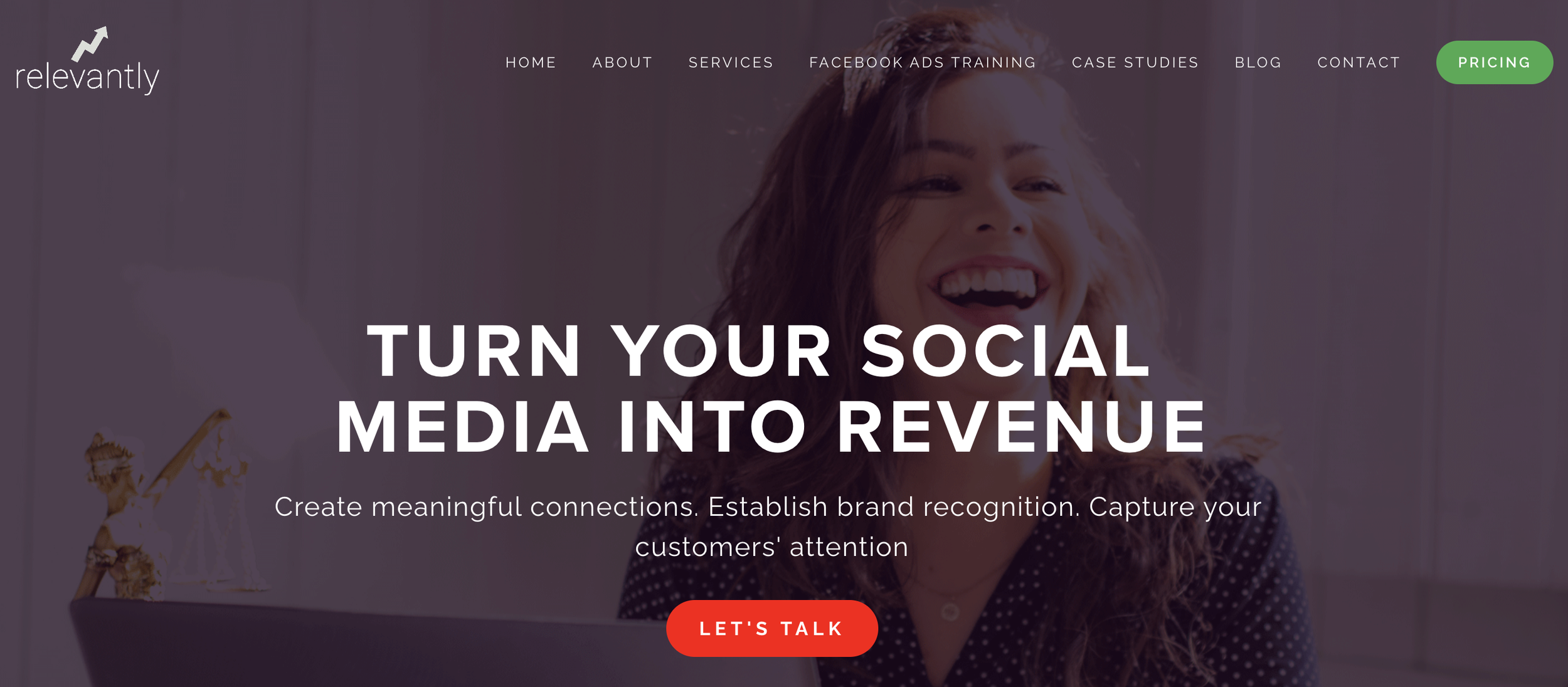If you own a small business owner and do not fully understand the value of digital marketing for small businesses, this article is for you!
A digital marketing campaign is a cost-effective method to help grow your business and expands its reach online. Having a well-established online presence is critically important if you want to see your business grow.
If you have any questions concerning digital marketing or you are hoping to take the next steps in your marketing plan, contact us today.
Table of Contents:
Click on each link to jump ahead:
a) Key Components of Digital Marketing
2. Inbound vs Outbound Marketing
3. Why Is Digital Marketing for Small Businesses Important?
4. How to Begin Your Digital Marketing Campaign
Digital Marketing for Small Businesses
1. What is Digital Marketing?
Digital marketing refers to the use of digital channels and technologies to promote products, services, or brands to reach and engage with a target audience.
Simply put, any marketing done online falls under the umbrella of digital marketing. It encompasses various online marketing strategies and tactics designed to:
Increase brand visibility
Generate leads
Drive website traffic
Level the playing field
Achieve business goals
More specifically, digital marketing leverages the power of the internet and digital platforms to deliver marketing messages to potential customers.
a) Key components of digital marketing
Search Engine Optimization (SEO): Optimizing website content and structure to improve organic search engine rankings and increase visibility in search engine results pages (SERPs).
Content Marketing: Creating and distributing valuable and relevant content, such as articles, blog posts, videos, and infographics, to attract and engage the target audience, with the aim of building brand credibility and driving customer actions.
Email Marketing: Sending targeted messages and promotional materials directly to individuals’ email addresses to nurture leads, build customer relationships, and encourage conversions.
Social Media Marketing: Utilizing social media platforms like Facebook, Twitter, Instagram and Pinterest to build brand awareness, engage with your audience, and promote products or services.
Analytics and Date-driven Marketing: Utilizing data analysis tools to measure and track marketing performance, gather customer insights, and optimize marketing strategies for better results.
Overall, an effective digital marketing campaign involves several complementary components and techniques.
For more information on which techniques you should employ, contact the experts at Relevantly.
b) Why Is It Important?
Digital marketing for small businesses is important because it provides businesses with the ability to:
Reach a global audience
Target specific demographics
Measure the effectiveness of campaigns
Adjust marketing strategies in real-time
It is a dynamic and ever-evolving field that continues to shape the way businesses promote and sell their products or services in the digital age.
To better understand marketing as a whole, we’ll break it into two categories; inbound and outbound marketing. Read on for the details.
2. Inbound vs Outbound Marketing
Marketing efforts can be split into two categories: inbound and outbound marketing. Both marketing methods have unique characteristics and values. Continue reading to learn more.
a) Inbound Marketing
Inbound marketing uses a customer-centric approach that aims to attract customers by providing valuable and relevant content, typically through digital platforms. The goal of inbound marketing is to pull potential customers towards a brand naturally, rather than interrupting them with intrusive advertising techniques.
Some examples of inbound marketing include:
Content Creation
Search Engine Optimization (SEO)
Social Media Marketing
Email Marketing
Lead Generation
Keyword optimization
The core idea behind inbound marketing is to create a valuable and positive experience for potential customers, establish trust and build long-term business relationships.
b) Outbound Marketing
Outbound marketing, also known as traditional or interruptive marketing, involves pushing marketing messages to a broad audience, regardless of their interests or engagement. It relies on proactive tactics to capture attention and promote products or services.
Some examples of outbound marketing include:
Television and Radio Ads
Print Advertising
Cold Calling
Cold Email
Direct Mail
Outbound marketing aims to create brand awareness by actively seeking out potential customers and pushing marketing messages, often using traditional techniques.
Both approaches have their merits and can be used in combination, depending on the business’s goals, target audience, and marketing strategies.
Now that you understand what digital marketing is and the two main classifications of marketing, let’s look at why digital marketing for small businesses is so important.
3. Why is Digital Marketing for Small Businesses Important?
Digital marketing is particularly important for small businesses for several key reasons:
Targeted Reach: Digital marketing for small businesses also allows for specific audience targeting. Through various tools and techniques, such as social media targeting, search engine advertising, and email segmentation, small businesses can focus their marketing efforts on reaching the right people who are more likely to be interested in their products or services and generate conversions.
Cost-Effective: Digital marketing provides a cost-effective alternative to traditional marketing methods. Small businesses often have limited marketing budgets, and digital channels allow them to reach a large audience at a fraction of the cost of outbound/traditional advertising methods like print ads and direct mail.
Increased Visibility: Establishing a strong online presence through digital marketing helps small businesses increase their overall brand visibility. Through leveraging the power of inbound marketing, business owners can optimize their website for search engines and leverage social media platforms to increase their online visibility and attract potential customers who are searching for relevant products or services.
Level Playing Field: Digital marketing provides small businesses with an opportunity to compete with larger competitors on a more level playing field. Online platforms do not discriminate based on the size of the business, and small businesses can use digital marketing techniques to create engaging content, build brand awareness, and establish their credibility without being overshadowed by bigger players in the market.
Engagement and Interaction: Digital marketing for small businesses also promotes customer interaction and relationship-building. Through social media platforms, email marketing, and producing interactive content, small businesses can interact with their audience, address their concerns, gather feedback, and provide personalized experiences that foster customer loyalty and advocacy.
Measurable Results: One of the great advantages of digital marketing is that it offers measurable results and analytics. Small businesses can track key performance indicators (KPIs) such as website traffic, conversions, engagement rates, and customer behaviour. This data allows businesses to understand the effectiveness of their marketing efforts, make data-driven decisions, and optimize their strategies for better results.
Digital marketing empowers small businesses to reach their target audience, increase brand visibility, engage with customers, compete effectively, and achieve their marketing goals, all while maximizing cost efficiency and staying adaptable in a rapidly evolving digital world.
A) What Does the Data Say?
Digital marketing is one of the fastest-growing industries in the world right now and for good reason. If you haven’t already begun your digital marketing journey, now is the time to start!
Research shows that “63% of businesses have increased their digital marketing budgets just this past year”.
Furthermore, “digital ad spend worldwide is estimated at $441 billion in 2022 and projected to reach $485 billion in 2023".
Check out the graph below for a visualization of this industry:
Image Source: WordStream
Now that you understand why digital marketing is important for small businesses, the next section will guide you in how to actually begin your digital marketing campaign.
4. How to Begin Your Digital Marketing Campaign
If you own a small business and you understand the value of digital marketing but you do not know where to begin, consider this guide:
Define Your Goals: Start by clearly defining your marketing goals. Determine what you want to achieve through your digital marketing efforts. It could be increasing your brand awareness, generating more leads, driving website traffic, or boosting sales. Setting specific, measurable, attainable, relevant and time-based (SMART) goals will provide a clear direction for your campaign.
Identify Your Target Audience: It is important that you understand your target audience’s demographic, interests, preferences, and online behaviour. This will help you tailor your marketing messages and choose the most effective digital channels to reach and engage with your potential customers.
Build Your Online Presence: Establish a professional and user-friendly online presence. Create a website that reflects your brand and provides relevant information about your products or services. Optimize your website for search engines (SEO) to improve visibility in search results. Set up profiles on social media platforms where your target audience is active.
Create Content: Once you have a website up and running it is now time to populate it with engaging content that resonates with your target audience. This could include blog posts, articles, videos, infographics, or podcasts. Whatever format you choose, ensure that it is informative, helpful, and aligned with your audience’s interests and needs.
Choose Digital Marketing Channels: When conducting digital marketing for small businesses it is important that you select digital marketing channels that align with your target audience. If your main demographic is middle-aged men, then Instagram ads mayn’t be your best bet. However, if you are targeting teens, then Instagram ads are a great option.
Craft a Digital Marketing Strategy: Develop a comprehensive digital marketing strategy that outlines your tactics, timelines, and budget. Define the key messages you want to portray, your content distribution plan, advertising budget, and performance measurement metrics. Consider both organic and paid marketing strategies to maximize your reach and effectiveness.
Execute and Monitor Your Campaign: Once your campaign has started, it is now time to monitor and track the performance of your campaigns using analytics tools and metrics. As mentioned previously, keep an eye on key performance indicators (KPIs) and return on investment (ROI).
Engage and Interact: When conducting digital marketing for small businesses you should constantly be engaging with your audience through social media platforms. This means responding to comments and messages and encouraging conversations. You can even encourage user-generated content and reviews to enhance your brand credibility.
Continuously Improve: Regularly evaluate the results of your digital marketing efforts and make data-driven decisions to improve your campaigns. Learn from your successes and failures, test different strategies, and optimize your tactics based on the insights you gather. Also, make sure you stay updated with the latest trends and changes in the digital marketing landscape.
Digital marketing for small businesses is an ongoing process that requires consistent effort and adaptation. If you require assistance with any of the above steps, it may be best to work with a digital marketing agency.
Now that you understand what it takes to actually begin your digital marketing campaign, you may realize you are better off working with a digital marketing agency.
5. Benefits of Working With a Digital Marketing Agency
Finding the right digital marketing agency for you can be a challenging task but it is worth it. Not only can a digital marketing agency help you define your goals and target audience, but they can also:
Build your website
Create engaging content for your website
Discover the best digital marketing techniques to use
Propose a digital marketing strategy
Constantly monitor and improve your campaign
The reality is, a lot of small business owners do not have the time to execute and monitor a digital marketing campaign. This is why “the average local business puts 5-10% of its revenue towards its digital marketing budget”.
How to Find the Right Agency For You
If you are a small business owner and you are currently searching for a digital marketing agency, consider the following tips:
Do Your Research: Research and explore different digital marketing agencies. Look for agencies that have experience working with small businesses or businesses in your industry. Read client testimonials, case studies, and reviews to get an idea of their track record and the results they have achieved for their clients.
Review Their Portfolio: Request to see examples of the agency’s previous work or ask for case studies. Review their portfolio to assess the quality of their work and see if their style and approach resonate with your business. This will give you an idea of their creativity, attention to detail, and ability to deliver results.
Ask for References: Don’t hesitate to ask the agency for references for their current or past clients. Reach out to these references to inquire about their experience working with the agency, the results they achieved, and their overall satisfaction. This will give you valuable insights into the agency’s reputation and client satisfaction.
Compatibility and Culture Fit: Consider the compatibility and culture fit between your business and the digital marketing agency. A good agency will take the time to understand your business goals, values, and target audience. A strong working relationship and shared understanding will contribute to a successful partnership.
If you are searching for a marketing agency that checks off all these boxes, contact the experts at Relevantly.
Trust the Marketing Experts at Relevantly
At Relevantly, we specialize in digital marketing and we would love to help you with your marketing plan!
By working with Relevantly, your marketing campaign will be optimized and maintained to ensure a positive return on investment.
We have over 15 years of marketing experience and our team has helped several companies and organizations across Ontario, Canada, and North America expand their brand.
If you are seriously considering advertising your business on Facebook but you do not know where to start, contact us today! We are here to help.















